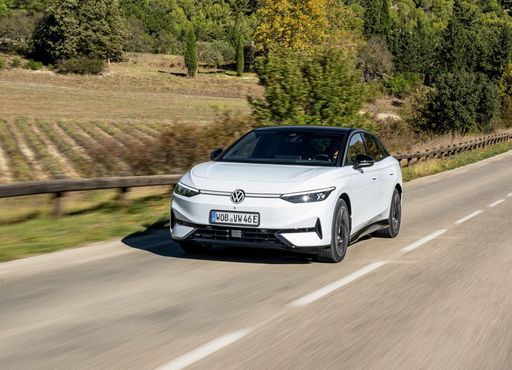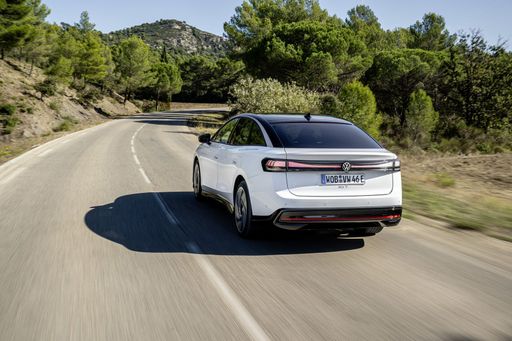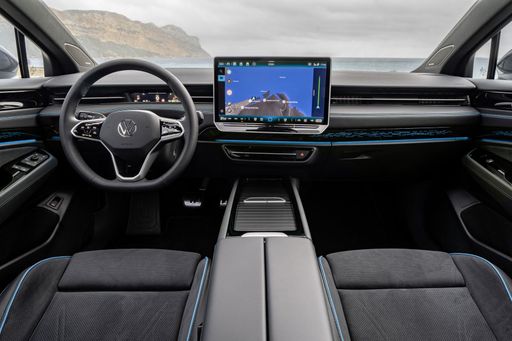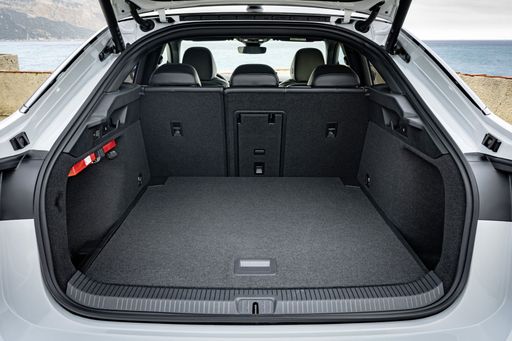VW ID.7 vs Tesla Model X - Differences and prices compared
Compare performance (340 HP vs 1020 HP), boot space and price (46400 £ vs 98600 £) at a glance. Find out which car is the better choice for you – VW ID.7 or Tesla Model X?
Costs and Efficiency:
Price and efficiency are key factors when choosing a car – and this is often where the real differences emerge.
VW ID.7 has a decisively advantage in terms of price – it starts at 46400 £, while the Tesla Model X costs 98600 £. That’s a price difference of around 52187 £.
In terms of energy consumption, the advantage goes to the VW ID.7: with 13.60 kWh per 100 km, it’s distinct more efficient than the Tesla Model X with 18.30 kWh. That’s a difference of about 4.70 kWh.
As for range, the VW ID.7 performs hardly perceptible better – achieving up to 708 km, about 59 km more than the Tesla Model X.
Engine and Performance:
Power, torque and acceleration say a lot about how a car feels on the road. This is where you see which model delivers more driving dynamics.
When it comes to engine power, the Tesla Model X has a significantly edge – offering 1020 HP compared to 340 HP. That’s roughly 680 HP more horsepower.
In acceleration from 0 to 100 km/h, the Tesla Model X is significantly quicker – completing the sprint in 2.60 s, while the VW ID.7 takes 5.40 s. That’s about 2.80 s faster.
In terms of top speed, the Tesla Model X performs evident better – reaching 262 km/h, while the VW ID.7 tops out at 180 km/h. The difference is around 82 km/h.
Space and Everyday Use:
Beyond pure performance, interior space and usability matter most in daily life. This is where you see which car is more practical and versatile.
Both vehicles offer seating for 5 people.
In curb weight, VW ID.7 is minimal lighter – 2180 kg compared to 2348 kg. The difference is around 168 kg.
In terms of boot space, the VW ID.7 offers distinct more room – 532 L compared to 425 L. That’s a difference of about 107 L.
In maximum load capacity, the Tesla Model X performs decisively better – up to 2675 L, which is about 1089 L more than the VW ID.7.
When it comes to payload, Tesla Model X a bit takes the win – 527 kg compared to 465 kg. That’s a difference of about 62 kg.
Who comes out on top?
Overall, the Tesla Model X shows itself to be outperforms in nearly all aspects and secures the title of DriveDuel Champion.
It convinces with the more balanced overall package and proves to be the more versatile choice for everyday use.

Tesla Model X
Costs and Consumption
View detailed analysis
Engine and Performance
View detailed analysis
Dimensions and Body
View detailed analysis
VW ID.7
VW ID.7 arrives as Volkswagen's electric grand tourer, pairing a low-slung, aerodynamic silhouette with a calm, understated interior that prioritizes comfort and space. It’s a sensible choice for buyers who want a relaxed, high-tech cruiser that covers motorway miles with poise rather than bravado.
details



Tesla Model X
The Model X stands out in the electric SUV market with its striking falcon-wing doors and spacious interior, providing both style and practicality. Its exceptional range and impressive performance make it a standout choice for environmentally-conscious drivers seeking a luxurious experience. With advanced technology features and a strong focus on safety, the Model X redefines what an electric vehicle can be.
detailsCosts and Consumption |
|
|---|---|
|
Price
46400 - 54200 £
|
Price
98600 - 107100 £
|
|
Consumption L/100km
-
|
Consumption L/100km
-
|
|
Consumption kWh/100km
13.6 - 16.2 kWh
|
Consumption kWh/100km
18.3 - 19.3 kWh
|
|
Electric Range
594 - 708 km
|
Electric Range
609 - 649 km
|
|
Battery Capacity
77 - 86 kWh
|
Battery Capacity
-
|
|
co2
0 g/km
|
co2
0 g/km
|
|
Fuel tank capacity
-
|
Fuel tank capacity
-
|
Dimensions and Body |
|
|---|---|
|
Body Type
Hatchback
|
Body Type
SUV
|
|
Seats
5
|
Seats
5
|
|
Doors
5
|
Doors
5
|
|
Curb weight
2180 - 2325 kg
|
Curb weight
2348 - 2470 kg
|
|
Trunk capacity
532 L
|
Trunk capacity
425 L
|
|
Length
4961 mm
|
Length
5036 mm
|
|
Width
1862 mm
|
Width
1999 mm
|
|
Height
1535 - 1536 mm
|
Height
1684 mm
|
|
Max trunk capacity
1586 L
|
Max trunk capacity
2675 L
|
|
Payload
460 - 465 kg
|
Payload
500 - 527 kg
|
Engine and Performance |
|
|---|---|
|
Engine Type
Electric
|
Engine Type
Electric
|
|
Transmission
Automatic
|
Transmission
Automatic
|
|
Transmission Detail
Reduction Gearbox
|
Transmission Detail
Reduction Gearbox
|
|
Drive Type
Rear-Wheel Drive, All-Wheel Drive
|
Drive Type
All-Wheel Drive
|
|
Power HP
286 - 340 HP
|
Power HP
670 - 1020 HP
|
|
Acceleration 0-100km/h
5.4 - 6.6 s
|
Acceleration 0-100km/h
2.6 - 3.9 s
|
|
Max Speed
180 km/h
|
Max Speed
240 - 262 km/h
|
|
Torque
545 - 679 Nm
|
Torque
-
|
|
Number of Cylinders
-
|
Number of Cylinders
-
|
|
Power kW
210 - 250 kW
|
Power kW
493 - 750 kW
|
|
Engine capacity
-
|
Engine capacity
-
|
General |
|
|---|---|
|
Model Year
2023 - 2024
|
Model Year
2025
|
|
CO2 Efficiency Class
A
|
CO2 Efficiency Class
A
|
|
Brand
VW
|
Brand
Tesla
|
What drive types are available for the VW ID.7?
The VW ID.7 is offered with Rear-Wheel Drive or All-Wheel Drive.
The prices and data displayed are estimates based on German list prices and may vary by country. This information is not legally binding.




